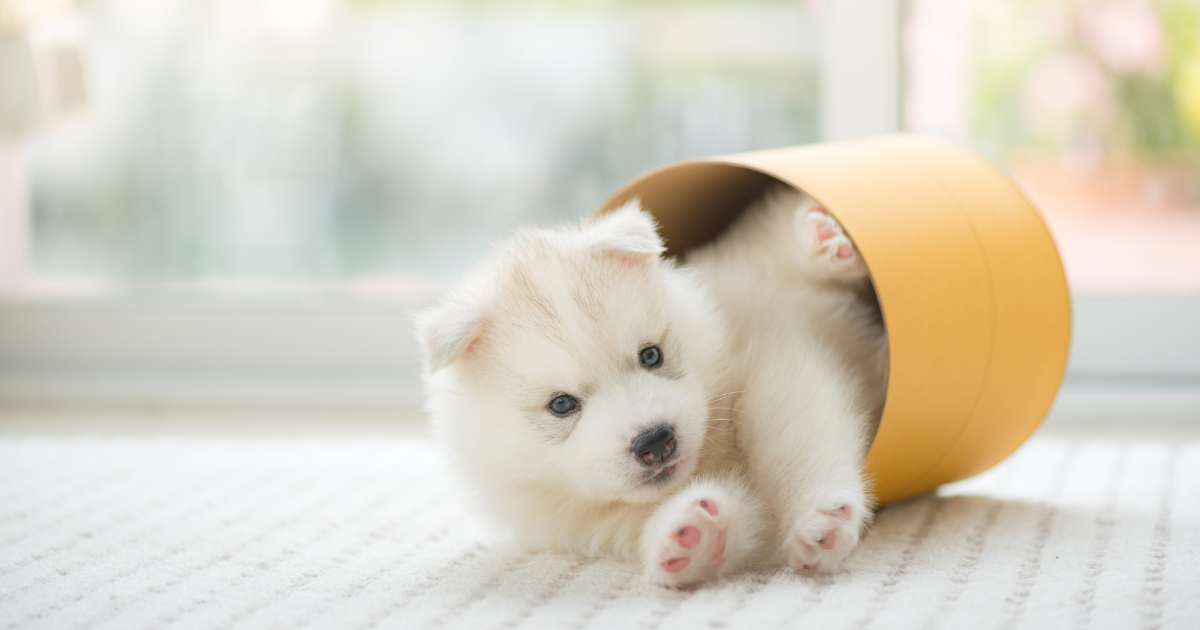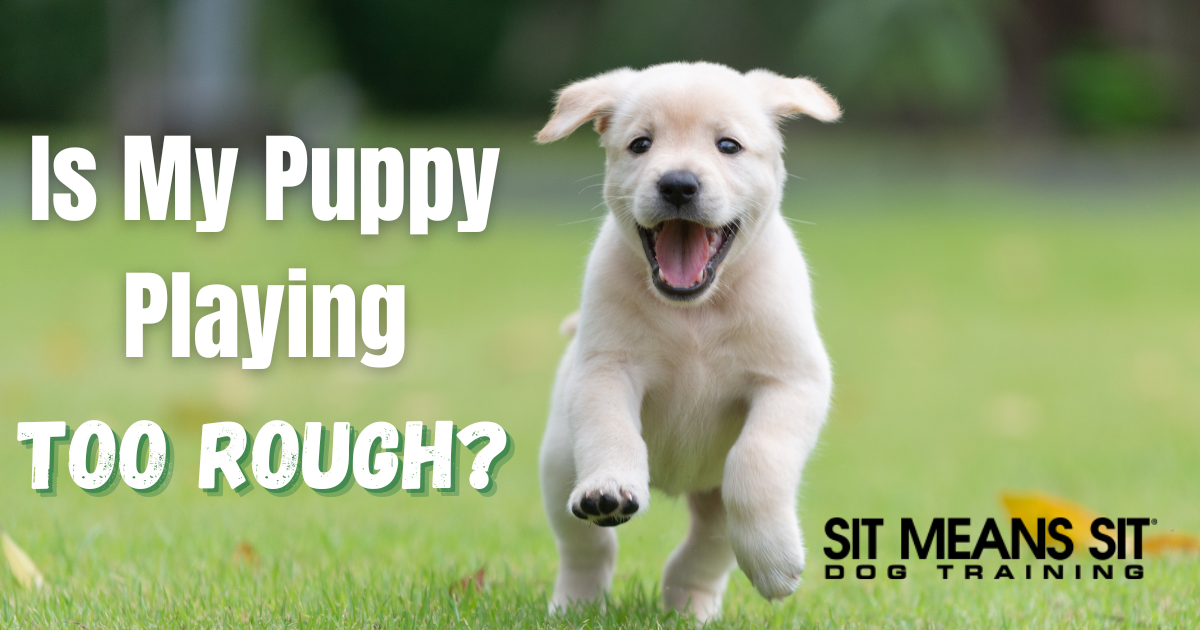Welcoming a new puppy into your home is an exciting and joyful experience! Watching them explore, play, and interact with their surroundings is a delight. However, as a pet owner, it’s crucial to ensure that your puppy’s playtime is safe and appropriate. One common concern that many pet parents have is whether their puppy is playing too rough. Keep reading to learn more about the signs to look for and provide helpful guidance on managing your puppy’s play behavior!

Understanding Normal Puppy Play
Puppies are naturally energetic and playful creatures! According to the AKC, Playtime is an essential part of their development and socialization process. During play, they learn vital skills like bite inhibition, body language interpretation, and social boundaries. It’s important to distinguish between normal play and behavior that crosses the line into roughness.
Recognizing Signs of Rough Play
While puppies engage in rough play as part of their natural behavior, there are signs that show it may go too far. Watch out for these indicators:
Intense biting: Puppies often explore the world with their mouths and may nip during play. However, if your puppy consistently bites hard, causing pain or bruising, it may be a sign of excessive roughness.
Aggressive body language: Pay attention to your puppy’s body language during play. Raised hackles, growling, or intense staring can indicate that their play is becoming overly aggressive.
Fearful or submissive behavior: If the other dogs or puppies involved in play frequently display fearful or submissive behavior, it could suggest that your puppy is playing too rough and causing distress.
Appropriate Play Management
If you notice that your puppy’s play is consistently too rough, it’s important to take appropriate measures to manage the behavior. Here are some helpful strategies:
Socialization: Adequate socialization with other puppies and dogs is crucial for your puppy to learn proper play behavior. Enroll them in supervised puppy classes or arrange playdates with well-behaved, gentle dogs!
Time-outs: If your puppy becomes too rough during play, interrupt the session by calmly removing them from the situation. Provide a brief time-out to allow them to calm down and understand that their behavior is unacceptable.
Redirecting behavior: When your puppy starts playing too rough, redirect their attention to appropriate toys or games that encourage gentler play. Reward them when they engage in appropriate play behavior.
Seek professional help: If your puppy’s rough play persists or escalates despite your efforts, consult a professional dog trainer or behaviorist. They can provide personalized guidance and help address any underlying issues contributing to the rough play.
Check out these related puppy posts for more tips!
Caring for a Puppy: A Full Guide

